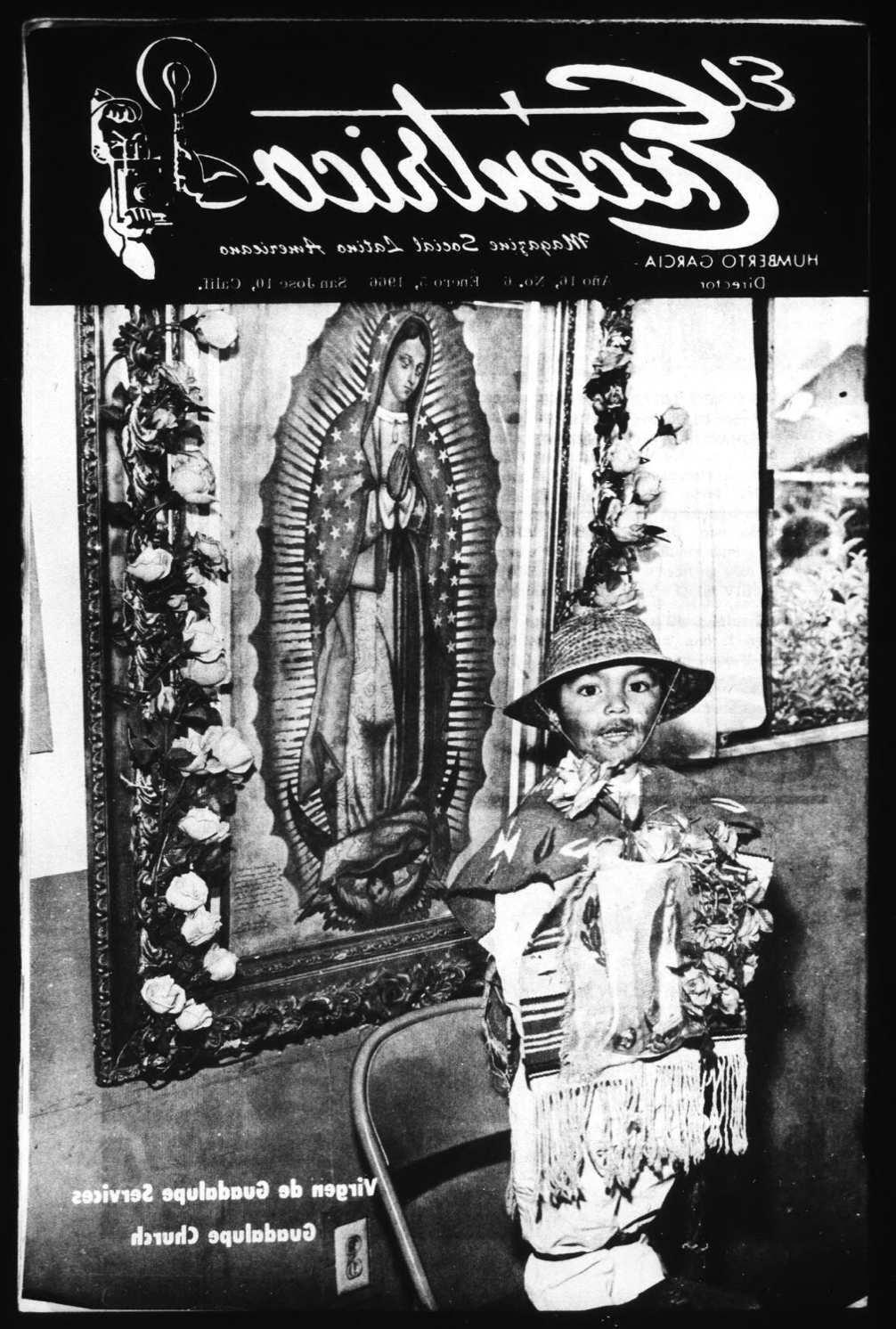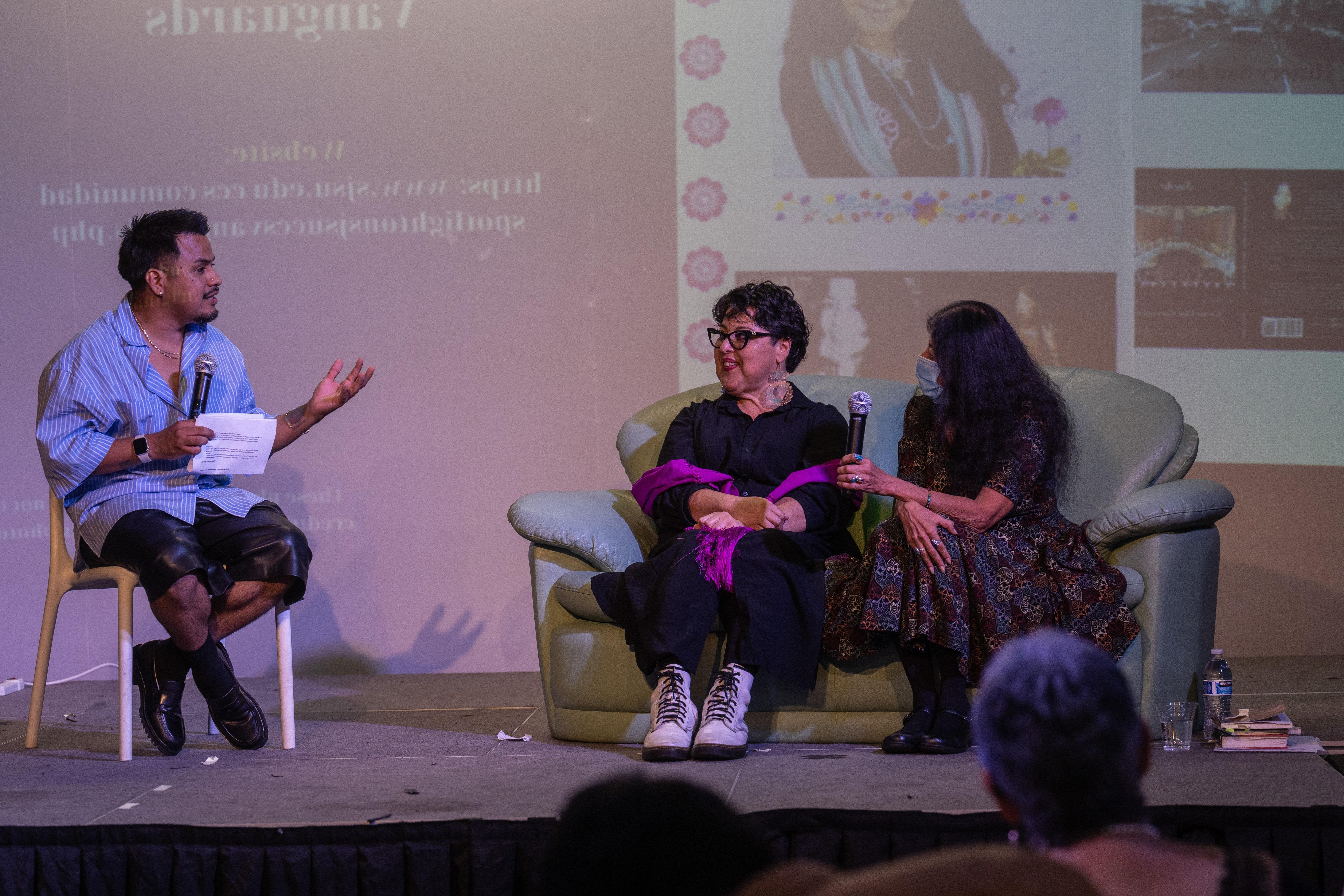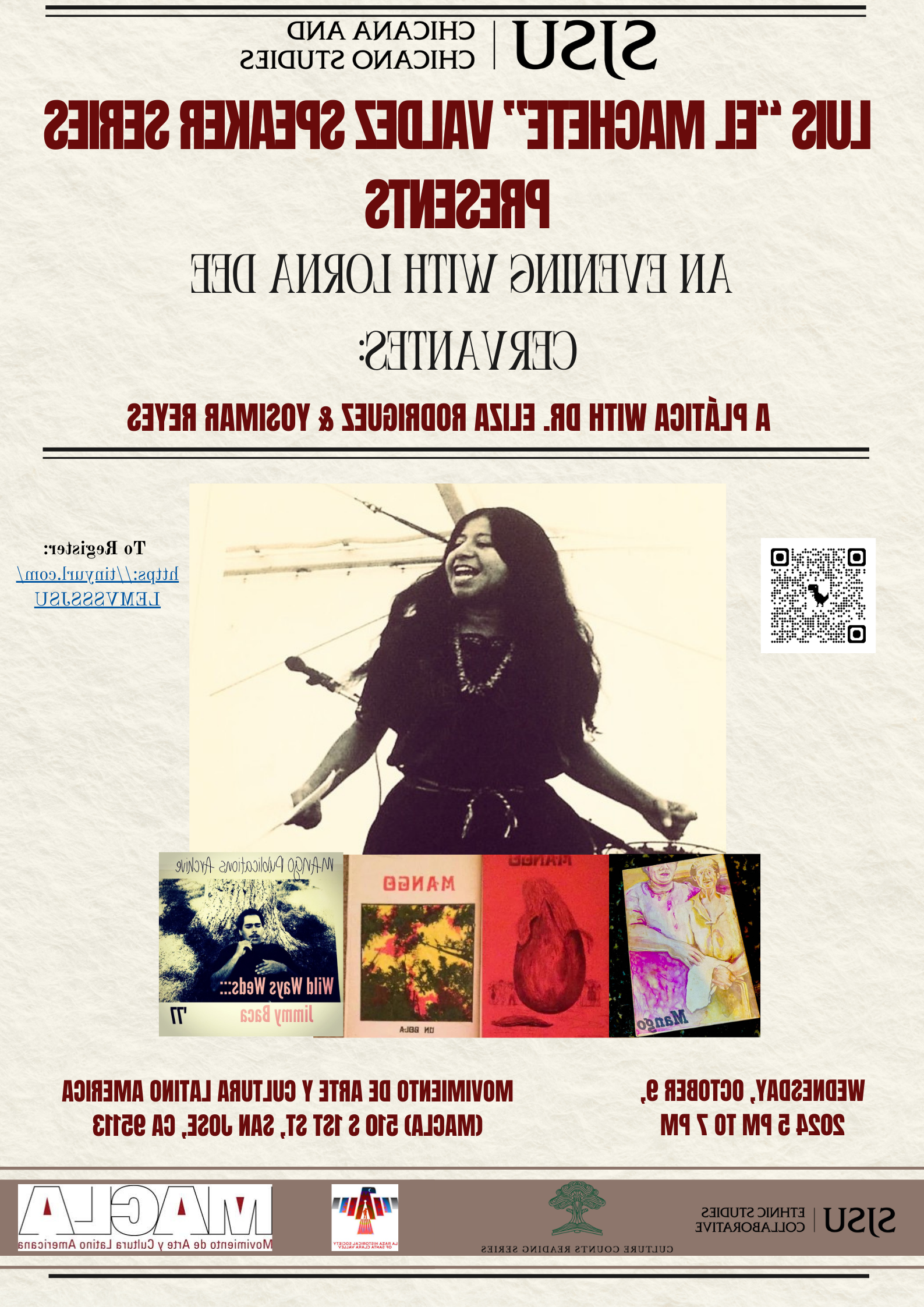Luis "El Machete" Valdez Speaker Series
The Luis “El Machete” Valdez Speaker Series celebrates the extraordinary work and history of Santa Clara County residents who helped shape the city of San José, the broader San Francisco Bay Area, and California. Focused on the contributions of Santa Clara County’s Mexican American and Chicana/o communities, this Speaker Series offers 菠菜网lol正规平台 and surrounding communities an opportunity to access the legacies of local and national histories of survival, sacrifice, and success.
The Luis “El Machete” Valdez Speaker Series is named for co-founder of El Teatro Campesino (ETC) and accomplished author, playwright, and dramaturg. It also nods to Valdez’s editorial columns in El Excentrico Magazine, which he wrote as an undergraduate student at 菠菜网lol正规平台. Valdez’s column offered his thoughts, reflections, and critiques of U.S. society, politics, and culture in the 1960s, providing “ an early glimpse into the historical, ideological, and ethnic/racial formation of the Chicano Movement of the 1960s [and] the ethnic consciousness and social activism of a generation of Mexican-origin people in the United States” (Camarillo 2023, 3).[1]
Origin: http://ezesparza.com/an-evening-with-maestro-luis-valdez-posterflyer |

The Luis Valdez-El Machete-Speaker Series is supported by San José’s La Raza Historical Society. Several CCS faculty and staff are longtime board members of this local public history organization that documents the history of Mexican American, Chicana/o, and U.S. Latina/o intellectual, political, and cultural leadership in San José. In fact, these CCS colleagues initiated the role of the Department of Chicana and Chicano Studies in the Speaker Series. In 2023, CCS Lecturer Rosanna Alvarez, vice president of La Raza Historical Society, was featured on NBC Bay Area’s Comunidad Del Valle, with Honorable Katherine Lucero, to announce La Raza Historical Society’s Legacy Award winners. Judge Lucero was awarded an honorary doctorate at the College of Social Sciences 2023 Commencement ceremony.
|
|
 |
|
|
|
In 2016, Luis Valdez discussed his early writings for El Excentrico Magazine with La Raza Historical Society’s board member and CCS Professor (Emeritus) Dr. Gregorio Mora-Torres. To watch the staged conversation, “Early Writings of Luis Valdez: El Excentrico Magazine 1964, 菠菜网lol正规平台 Speaker Series 4/27/2016, Part 3/3,” see, more in this YouTube video. |
Dr. Gregorio Mora-Torres, Rosanna Alvarez, Erlinda Yañez, and several faculty and staff of the CCS Department demonstrate how deeply the history of MAS, now CCS, is embedded in San José—not only as community engaged scholars and practitioners of principles of social justice that undergird the Chicana/o Studies discipline; but as tlamatinime, keepers of the black and red ink, and, specifically, the rich memory of San José, which they share with future ancestors (菠菜网lol正规平台 students) who restore a vital sense of place amongst a longtime residential workforce of Chicana/o peoples.[2]
[1] Camarillo, Albert. “Foreword” to The Early Works of Luis Miguel Valdez in El Excentrico
Magazine: El Machete Critiques of American Society, Eds. Gregorio Mora Torres and
Rosanna Alvarez, pages 3-4. San José: La Raza Historical Society Publishing, 2023.
[2] Pérez, Laura E., “Spirit Glyphs: Reimagining Art and Artist in the Work of Chicana Tlamatinime.” MFS Modern Fiction Studies, 44:1 (1998): 36-76. Project MUSE, doi:10.1353/mfs.1998.0009. The concept of the tlamatinime in Chicana/o theory has evolved from canonical Chicano poetry, particularly the 1960s-70s writings of Alurista.
| At this year's annual Luis Valdez-El Machete-Speaker Series we had the honor of hosting Lorna Dee Cervantes for a night filled with poetry and stories. We hope you enjoyed the event and hope to see you next year! |  |
 |
 |

| Web page designed by Dept.Coordinator Nailah Cherie Smith |
